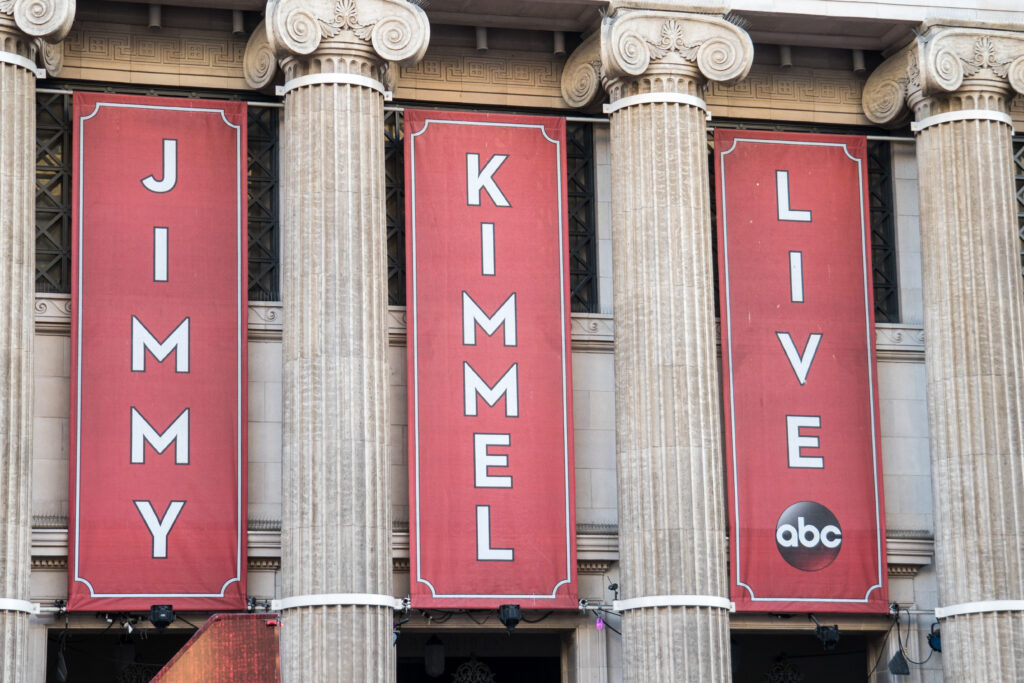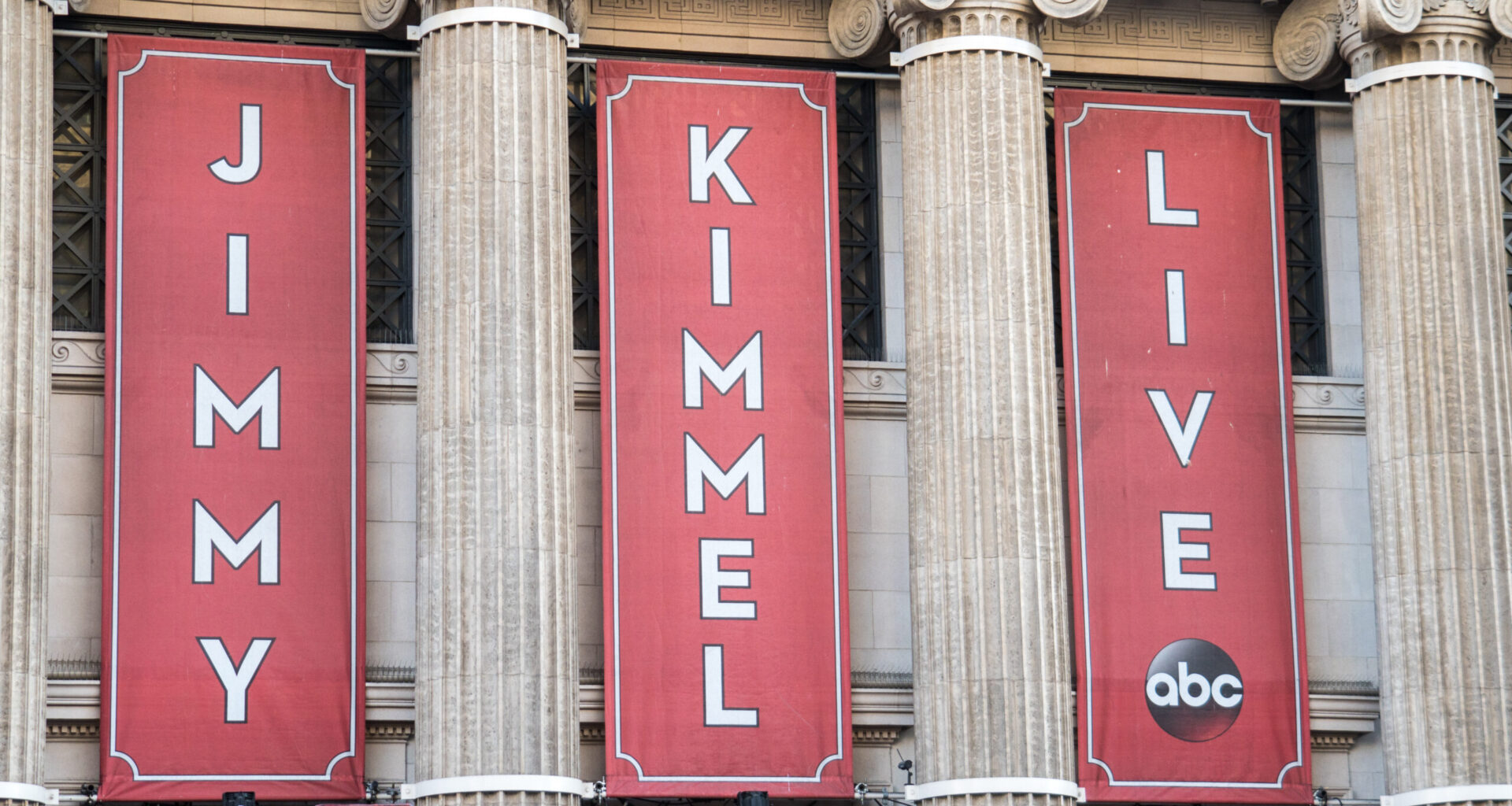 Banners for the Jimmy Kimmel Live television show. [Adobe Stock/FAMUAN]
Banners for the Jimmy Kimmel Live television show. [Adobe Stock/FAMUAN]
The death of conservative activist Charlie Kirk is sparking questions about the line between protected speech, hate speech and institutional policies—a conversation that has spread to college campuses, workplaces and even late-night television.
After Kirk’s passing, several students and employees across the country faced disciplinary action for comments made online, with some losing jobs or being expelled from universities. People in support of those punished say that their words, while controversial, fall under the umbrella of free speech, while critics argue those comments cross into disrespect and harm.
The issue escalated beyond campuses when late-night host Jimmy Kimmel was briefly suspended from ABC due to his remarks on Kirk’s death during his show on Sept. 15.
“MAGA gang desperately trying to characterize this kid who murdered Charlie Kirk as anything other than one of them and doing everything they can to score political points from it,” Kimmel said on his show
The backlash was immediate. President Donald Trump weighed in. “He has no talent, and he’s got no ratings.”
Disney and its sister companies came under fire for the suspension, and more than 400 celebrities signed an open letter condemning the decision. By Sept. 23, Kimmel was reinstated, and in his return monologue, he reflected on the moment.
“This show is not important,” Kimmel said on-air. “What is important is that we get to live in a country that allows us to have a show like this.”
At Florida A&M University, students are considering what free speech looks like on their own campus. Lovely Eveque, a senior public relations student, said she believes her HBCU community is open to a range of views.
“I think everyone’s viewpoints are considered, that we all have open minds and we’re not here to think less of anyone because of their viewpoints,” she said.
Still, she thinks giving a platform to controversial outside speakers could harm the university’s reputation.
“I do not think those type of figures should be allowed because it can shine a bad light on the university if it doesn’t align with the school’s mission,” she said.
Bryant Green, a fourth-year broadcast journalism student, was more skeptical about equal treatment of political perspectives.
“On our campus, no. I feel like we have more of a left-leaning campus,” he said. “If you go into a classroom and say something that’s very conservative, you are going to get a lot different feedback than someone that’s very liberal.”
Still, Green supports allowing controversial figures to speak.
“That’s part of freedom of speech,” Green said. “I feel like we have a student body that’s mature enough and educated enough to be able to take in information and not let it affect them negatively.”
Graduating senior Nykerica Thrower said she feels students generally have the space to speak freely but does not think controversial speakers should be given the microphone.
“If it doesn’t agree with the university’s morals or ethics, that can go left really fast,” she said.
When asked about the expulsions and firings connected to comments about Kirk’s death, all three students said they saw it as an overreach.
“I don’t agree with people being taken away from a university that they pay to get educated nor do I think a job should be stripped away for making comments about someone’s death,” Eveque said. “It’s actually very frightening in the political climate that we’re in that we can’t make comments without fear of being taken out of school.”
Green pointed to examples at Texas State University, where a student was expelled after protesting Kirk’s memorial.
“He was doing a bit much, but that’s still part of free speech,” Green said. “There were kids writing on the memorial, there was vandalism, but I feel like it’s a part of free speech. I don’t think there should be repercussions for expressing how you feel.”
Thrower echoed those concerns, questioning whether universities are truly upholding freedom of expression. “I don’t think it was justified. If we can’t have our own opinion, isn’t that more of a dictatorship than freedom of speech?”
Each of the students agreed that the lines between free speech, hate speech and campus policy are often unclear. Green added that social media makes it even harder to draw distinctions.
“Especially with all of the avenues we can use to profess our thoughts, a lot of it gets misconstrued and taken the wrong way depending on the platform,” Green said.

